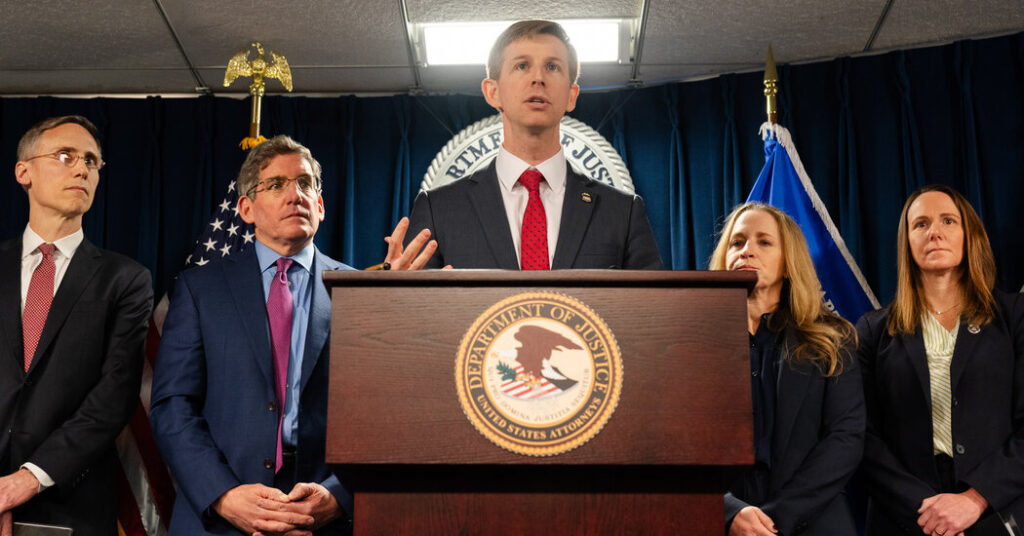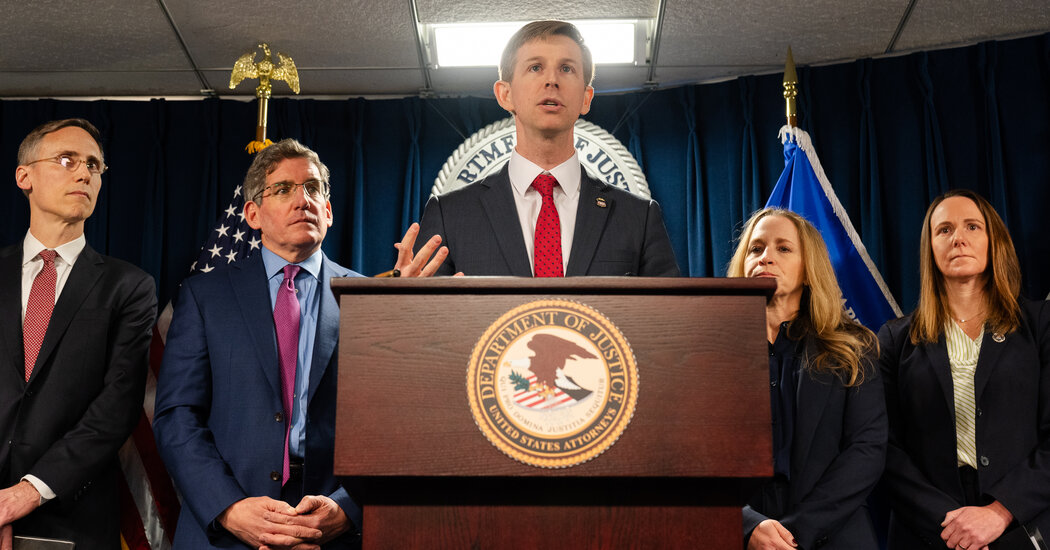
McKinsey and the Opioid Crisis: A Deep Dive into the Consulting Firm’s Role
The opioid crisis has ravaged communities across the United States, leaving a trail of addiction, overdose deaths, and shattered lives. While pharmaceutical companies like Purdue Pharma have faced significant scrutiny for their role in fueling the epidemic, the involvement of consulting firms, particularly McKinsey & Company, has also come under intense examination. This article delves into McKinsey’s role in the opioid crisis, exploring the consulting firm’s advice to Purdue Pharma and its impact on the proliferation of opioids.
The Opioid Epidemic: A Brief Overview
The opioid epidemic in the United States is a complex public health crisis that began in the late 1990s. Fueled by aggressive marketing tactics by pharmaceutical companies promoting opioid painkillers for chronic pain, the epidemic quickly spiraled out of control. Many individuals who initially became addicted to prescription opioids transitioned to illicit opioids like heroin and fentanyl, leading to a surge in overdose deaths. [See also: The Role of Pharmaceutical Marketing in the Opioid Crisis]
McKinsey’s Engagement with Purdue Pharma
McKinsey & Company, a global management consulting firm, worked with Purdue Pharma, the manufacturer of OxyContin, for over a decade. During this time, McKinsey provided advice on sales strategies, marketing tactics, and public relations. The firm’s recommendations were aimed at boosting OxyContin sales, even as evidence mounted about the drug’s addictive potential and the growing opioid crisis. Specifically, McKinsey advised Purdue on how to counter the message that opioids were dangerous and addictive.
Boosting OxyContin Sales
Internal McKinsey documents revealed strategies to “turbocharge” OxyContin sales. These included targeting high-volume prescribers, incentivizing sales representatives to push higher doses, and influencing the prescribing habits of doctors. McKinsey also helped Purdue Pharma develop plans to defend against potential restrictions on opioid prescriptions. These strategies directly contributed to the over-prescription of OxyContin and the subsequent rise in opioid addiction. The firm’s recommendations focused almost exclusively on maximizing profit, with little regard for the devastating consequences of opioid addiction. The focus was on driving revenue, even if it meant contributing to a public health catastrophe.
Countering Anti-Opioid Messaging
As public awareness of the opioid crisis grew, so did concerns about OxyContin and its role in addiction. McKinsey advised Purdue Pharma on how to counter negative publicity and downplay the risks of opioid addiction. This included strategies to influence public opinion, lobby policymakers, and shape media narratives. By actively working to undermine efforts to address the opioid crisis, McKinsey further exacerbated the problem. The consulting firm essentially acted as an enabler, helping Purdue Pharma to continue profiting from OxyContin despite the mounting evidence of its harmful effects.
The Legal Fallout and Public Scrutiny
McKinsey’s involvement in the opioid crisis has led to significant legal and public scrutiny. In 2021, McKinsey reached a $573 million settlement with attorneys general from nearly every state in the United States. The settlement resolved investigations into McKinsey’s work for Purdue Pharma and other opioid manufacturers. As part of the settlement, McKinsey was required to disclose internal documents related to its opioid work. This disclosure provided greater transparency into the firm’s actions and the extent of its involvement in the crisis. [See also: The Legal Battles Against Opioid Manufacturers]
The Settlement and its Implications
The $573 million settlement was a significant step towards holding McKinsey accountable for its role in the opioid crisis. However, many critics argued that the settlement was not enough, given the immense suffering caused by opioid addiction. The settlement also raised questions about the ethical responsibilities of consulting firms and their role in shaping corporate behavior. The implications of the McKinsey settlement extend beyond the opioid crisis, potentially impacting the way consulting firms operate and the advice they provide to clients in other industries.
Public Opinion and Reputation Damage
McKinsey’s reputation has suffered significantly as a result of its involvement in the opioid crisis. The firm has faced widespread criticism from the public, policymakers, and the media. Many have questioned the firm’s ethics and its commitment to social responsibility. The reputational damage has impacted McKinsey’s ability to attract and retain talent, as well as its relationships with clients. The firm has taken steps to address the reputational damage, including issuing apologies and pledging to improve its ethical standards.
Ethical Considerations for Consulting Firms
The McKinsey opioid crisis case highlights the ethical considerations that consulting firms must grapple with. Consulting firms often work with powerful corporations, providing advice that can have a significant impact on society. It is crucial that these firms operate with integrity and prioritize the public good over profit. [See also: Ethical Dilemmas in the Consulting Industry]
Balancing Profit and Social Responsibility
Consulting firms face a constant tension between maximizing profit and fulfilling their social responsibilities. While it is important for firms to be profitable, they must also consider the potential impact of their advice on society. This requires a commitment to ethical decision-making and a willingness to prioritize the public good, even if it means sacrificing short-term profits. McKinsey’s actions in the opioid crisis demonstrate the dangers of prioritizing profit over social responsibility.
The Importance of Due Diligence
Consulting firms must conduct thorough due diligence before taking on clients or providing advice. This includes assessing the potential risks and benefits of their work, as well as considering the ethical implications. By conducting thorough due diligence, consulting firms can identify potential conflicts of interest and avoid contributing to harmful outcomes. In the case of McKinsey and Purdue Pharma, a more rigorous due diligence process could have prevented the firm from becoming entangled in the opioid crisis.
McKinsey’s Response and Reforms
In the wake of the opioid crisis settlement, McKinsey has taken steps to address its role and implement reforms. The firm has issued apologies, pledged to improve its ethical standards, and established new policies to prevent similar situations from occurring in the future. However, some critics argue that these reforms are not enough and that McKinsey needs to fundamentally change its culture and values.
New Policies and Procedures
McKinsey has implemented several new policies and procedures aimed at preventing future ethical lapses. These include enhanced due diligence processes, stricter conflict of interest rules, and improved training for consultants. The firm has also established a new ethics committee to oversee its ethical standards and ensure compliance. These new policies and procedures represent a significant step towards improving McKinsey’s ethical framework.
A Culture Shift?
Whether McKinsey’s reforms will lead to a genuine culture shift remains to be seen. Changing a firm’s culture is a complex and challenging process that requires sustained effort and commitment. McKinsey must demonstrate a genuine commitment to ethical decision-making and prioritize the public good over profit. Only then can the firm truly regain the trust of the public and its stakeholders. The McKinsey opioid crisis case serves as a cautionary tale for the entire consulting industry. The opioid crisis highlights the importance of ethical considerations for consulting firms, and the potential consequences of prioritizing profit over social responsibility. The firm’s involvement with Purdue Pharma demonstrates the need for rigorous due diligence, ethical decision-making, and a commitment to the public good. While McKinsey has taken steps to address its role and implement reforms, the firm must demonstrate a genuine commitment to ethical behavior in order to regain the trust of the public and its stakeholders. The opioid epidemic continues to impact communities across the country, and the lessons learned from the McKinsey opioid crisis case must be applied to prevent similar tragedies from occurring in the future. The opioid crisis is a stark reminder of the importance of corporate social responsibility and the need for ethical leadership.
The Ongoing Opioid Crisis and Future Implications
The opioid crisis continues to be a major public health challenge in the United States. Overdose deaths remain at record highs, and communities continue to grapple with the devastating consequences of addiction. The McKinsey opioid crisis case has highlighted the complex factors that contributed to the epidemic, including the role of pharmaceutical companies, consulting firms, and policymakers. The McKinsey opioid crisis serves as a cautionary tale for the entire consulting industry. The opioid crisis highlights the importance of ethical considerations for consulting firms, and the potential consequences of prioritizing profit over social responsibility. The firm’s involvement with Purdue Pharma demonstrates the need for rigorous due diligence, ethical decision-making, and a commitment to the public good. The McKinsey opioid crisis is a clear example of how unchecked corporate greed can lead to devastating consequences for individuals and communities. The opioid crisis is a complex issue with no easy solutions, but the lessons learned from the McKinsey opioid crisis case can help to inform future efforts to address this ongoing public health challenge.
The McKinsey opioid crisis is a stark reminder of the importance of corporate social responsibility and the need for ethical leadership. The McKinsey opioid crisis case has raised important questions about the role of consulting firms in shaping corporate behavior and the need for greater accountability. As the opioid crisis continues to evolve, it is crucial that all stakeholders learn from the mistakes of the past and work together to prevent future tragedies. The McKinsey opioid crisis serves as a cautionary tale for other consulting firms. The opioid crisis highlights the importance of ethical considerations for consulting firms, and the potential consequences of prioritizing profit over social responsibility. The McKinsey opioid crisis is a clear example of how unchecked corporate greed can lead to devastating consequences for individuals and communities. The opioid crisis is a complex issue with no easy solutions, but the lessons learned from the McKinsey opioid crisis case can help to inform future efforts to address this ongoing public health challenge. The opioid crisis is a stark reminder of the importance of corporate social responsibility and the need for ethical leadership. The ongoing opioid crisis demands continued attention and action from policymakers, healthcare providers, and communities across the country. McKinsey’s role in the opioid crisis has been widely criticized. The opioid crisis continues to be a significant public health issue.

